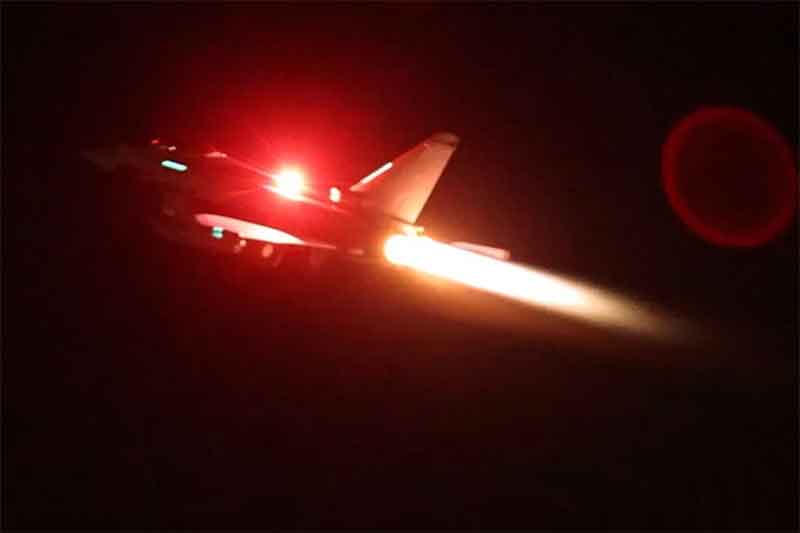
Despite a focus on boxing China in the Indo-Pacific, US involvement in the Middle East continues to be widespread and problematic. While Israel is given its regular steroid diet of murderous arms, US military personnel find themselves scattered throughout a myriad of bases and countries. Recently, Kentucky Republican Senator Rand Paul decided that Syria should not be one of them.
In his bill to the Senate, Paul called for “the removal of United States Armed Forces from hostilities in Syria that have not been authorized by Congress”, leaving a 30-day timeframe for the measure to take place. It notes, among a number of events, that US armed forces in Syria and Iraq since October 17 “have been attacked at least 52 times, with 28 attacks in Syria and 24 attacks in Iraq. Such attacks resulted in at least 56 members of the United States Armed Forces being injured, of whom at least 25 members have sustained traumatic brain injuries.” Such are the travails of empire.
The concern is valid enough. With the Israel-Hamas war continuing in its heaving murderousness, allies for the Palestinian cause are getting tetchy. From the US perspective, that tetchiness deserves retaliation, notably targeting any forces backed by Iran throughout the Middle East. The soldiers, in other words, are not just in harm’s way, but likely to cause widening harm.
As Paul explained to his fellow senators, “It seems to be, though our 900 troops have no viable mission in Syria, that they’re sitting ducks.” Even more saliently, he insisted that they were “a tripwire to a larger war, and without a clear-cut mission, I don’t think they can adequately defend themselves, yet they remain in Syria.”
The problem here, as with all childish impulses of US power, is the fear that its freedom loving forces might look like insufferable sissies in the face of armed savages who have no innate sense of that same freedom.
The impulse for remaining in Syria is treated by desk spanking wonks in the Pentagon and State Department as one of those good ideas to dampen and snuff out any prospect of renewal on the part of the Islamic State of Iraq and Syria. But this, as we have known for a while, is merely a case of medium and vehicle. In December 2018, President Donald Trump noted that the caliphate aspirants had lost 99 of their territory. “We have defeated ISIS in Syria, my only reason for being there,” he declared. He subsequently promised a “full” and “rapid” withdrawal of US forces.
Apoplexy, and various sabotaging efforts from those hostile to the suggestion, followed. Defense Secretary Jim Mattis resigned in protest. As Ambassador Jim Jeffrey, who served as special representative for Syria Engagement put it to Defense One, “When the situation in northeast Syria had been fairly stable after we defeated ISIS, [Trump] was inclined to pull out. In each case, we then decided to come up with five better arguments for why we needed to stay. And we succeeded both times. That’s the story.”
The broader reason for maintaining US personnel in the Levant and Iraq is largely based on keeping the theocratic mullahs in Teheran in check. On this point, former US ambassador to Syria, Robert Ford, is helpfully candid. “ISIS hasn’t controlled Tanf (near the junction of Syria/Jordan/Iraq) for 7 years. The real (but unstated) reason the US is there is to block Iran from using a road coming from Iraq into Syria.”
Pundits with their stick-figure commentary (it’s all in the form, not substance, see?) continue to scratch for their crust and wisdom on the theme that withdrawing occupation forces from a territory spells doom and disaster for the broader project. Call it civilisation, democracy, or whatever fable might so happen to satisfy the memorandum and itch of the moment. Yes, the US did invade and impose itself with muscular violence, but why leave the violated party even as the effects of molestation continue to be felt? “With a withdrawal of US forces from Syria (as well as Iraq) becoming more likely,” warn the earnest authors of a report for the New Lines Institute, “US policy makers must understand the long-term effects of withdrawal will cause and then adapt accordingly. This is particularly urgent given the possibility of a US withdrawal triggering malign actors in Syria, including Iran, to rush to fill the power vacuum.”
Pentagon advisor Michael Rubin was also one to rush to the podium of common values in justifying what he regarded as a rather modest US investment in Syria for excellent returns. Washington had, for instance, supported the Autonomous Administration in North and East Syria (AANES), and insisted that more funding was needed. The ongoing relationship with the Syrian Democratic Forces (SDF) was also of value.
Paul, at least on this score, was always going to struggle in getting the resolution across the line. Republican Senate Minority Leader Mitch McConnell of Kentucky, may, or may not have been suffering some seizure in observing that passing “such a resolution would be a gift to Iran and its terrorist network.” The removal of US forces from the Middle East was “exactly what they’d like to see.” The resolution was duly defeated, with 13 members favouring it, and 84 opposed.
The more level-headed observers have, like Paul, concluded that Washington’s forces in Syria are merely ripening targets, fodder for deeper and wider conflict. Justin Logan of the CATO Institute has made the self-evident point that US forces in Syria, after the Hamas attack on Israel on October 7, “have served as little more than shooting gallery targets for regional militias backed by Iran. Contrary to their ostensible purpose, they are not fighting ISIS.”
Such conservative outlets as the National Review agree. One of its senior writers, Michael Brendan Dougherty, is lacerating about the presence. “Our troops in Syria have no mission, and they have no lawful reason given to them by our Congress to remain there. In the meantime, they serve as convenient targets for Iranian-backed militias who otherwise would have no way of threatening American lives.” For those inclined towards permanent wars, that remains a most desirable state of affairs.
Dr. Binoy Kampmark was a Commonwealth Scholar at Selwyn College, Cambridge. He currently lectures at RMIT University. Email: [email protected]
















































